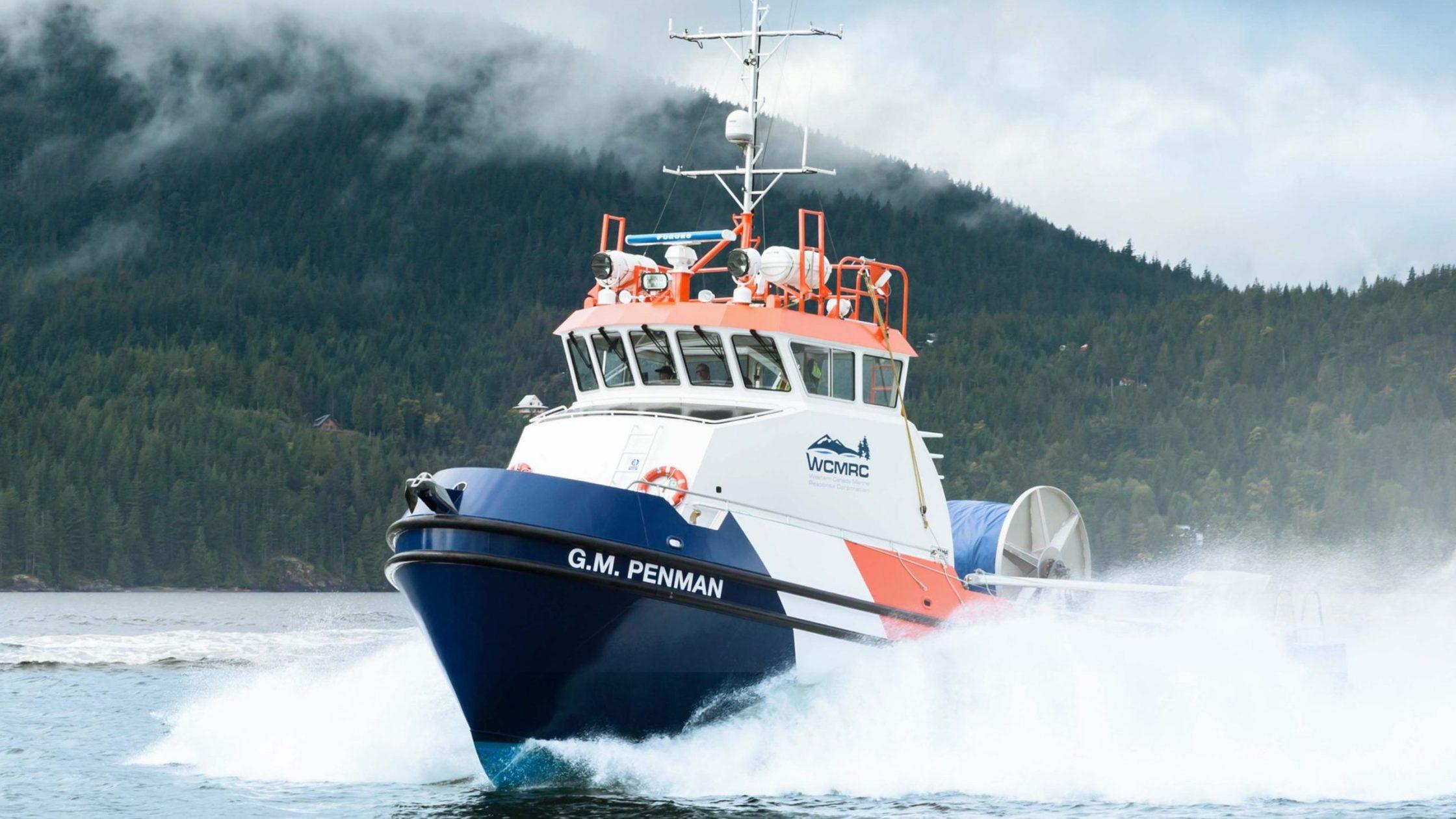Trans Mountain Corporation continues to work on the largest-ever expansion of spill response on B.C.’s south coast.
The company, which is twinning the Trans Mountain pipeline from Edmonton, Alta. to Burnaby, B.C., has delivered 40 of 44 spill response boats as part of a $150-million investment in Western Canada Marine Response Corporation (WCMRC). The WCMRC fleet includes custom-built spill response boats, deck and tank barges, landing craft, skiffs and workboats.
Trans Mountain, in its fall Marine Progress Report, also announced that WCMRC has hired 119 of 123 new full-time positions. The company said significant progress has been made on constructing six new bases that can handle potential ship-source marine spills.
The enhancements, said Trans Mountain, will double WCMRC’s existing response capacity and significantly reduce response time.
The Trans Mountain project has loaded petroleum on marine vessels off the south coast of B.C. with no spill incidents in nearly 65 years of tanker operations.
“The Trans Mountain project, right from the beginning, started thinking about the impacts on the marine environment – it did a lot of listening,” said Robert Lewis-Manning, president of the Chamber of Shipping, a leading Canadian marine transportation industry association.
“It reached out to a lot of networks of people, including those in industry, those in local communities, and those in First Nations along the route of the shipping channel.”
WCMRC is the only Transport Canada-certified marine response organization on Canada’s west coast. Its mandate, said Trans Mountain, ensures there is a state of preparedness in place when a marine spill occurs and to mitigate coastal impacts, including wildlife protection public safety.
Pursuant to conditions set out by the Canada Energy Regulator and the B.C. Environmental Assessment Office, Trans Mountain has also filed its Plan for Marine Spill Prevention and Response Commitments. Other milestones in progress include submission of a Marine Mammal Protection Program and an Indigenous Marine Outreach Program.
“That effort to build those capabilities wasn’t something that Trans Mountain Expansion project was required to do by regulation but chose to go above and beyond the regulatory requirement that the project was bound to implement,” said Lewis-Manning.
“This project is going to have a few lasting legacies, but I think the most important one will be the relationships and networks that have been developed.”
WCMRC is an industry-funded organization with more than 2,300 members. Membership is mandatory for vessels of a certain size calling on Canadian ports, as well as for oil-handling facilities receiving or shipping oil across their docks.
The Trans Mountain Pipeline is owned by the Government of Canada through Trans Mountain Corporation, a subsidiary of the federal Crown corporation Canada Development Investment Corporation. The pipeline twinning adds 980 km of pipe and increases capacity from 300,000 barrels per day to 890,000.
The unaltered reproduction of this content is free of charge with attribution to Canadian Energy Centre Ltd.
